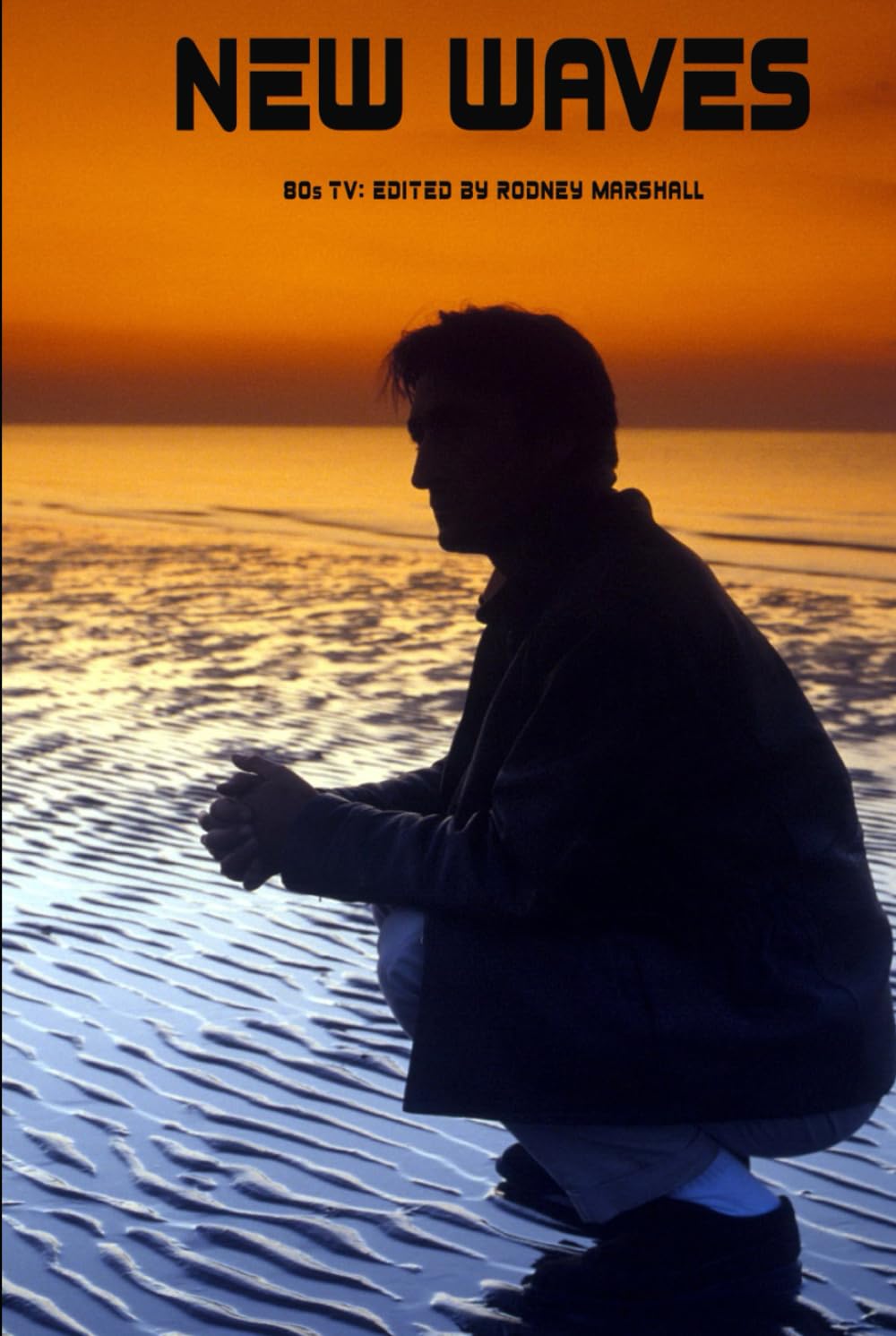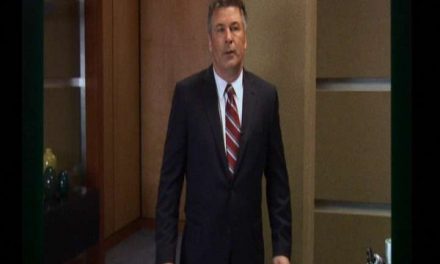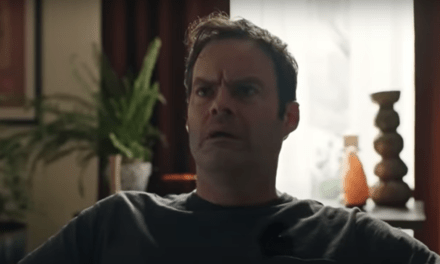So, this morning, the day has already got off to a good start with the unprompted arrival of what I like to think of as a ‘Nice one!’ e-mail.
They don’t have to be long. They don’t have to be complicated. And – indeed – they were a thing taught to me in the technology field before we even had e-mails. I have no idea what I liked to think of them as back then.
This one was from a correspondent whom I’ve never met telling me how they’d enjoyed something I’d worked on thirteen years ago. Just a couple of lines. That simple. Made the morning that little bit better.
Some seventeen years before the thing that I worked on thirteen years ago, I noticed that a very smart line manager tended to just find an extra moment to quickly tell his team on a regular basis that he was rather taken with them doing their jobs well and doing what was needed. And that their work was appreciated. And it soon became clear that this was a key element in forming a strong team – a team that I remember, when required, going the extra mile at times of technical crisis to determine a solution.
It’s something that I tried to take on board and deploy in this televisual field. If I read a book or article, watch a programme or documentary, hear a radio show or podcast and enjoy it, then – if possible and practicable – I like to drop a quick line to the people behind it to say what pleasure their well-crafted item has brought at this end. Y’know. “Nice one!”
I sent out a few ‘Nice one!’ e-mails as a result of reading the above volume: New Waves (2024), a collection of essays about 1980s British television curated by Rodney Marshall as one of the follow-ups to his earlier Swinging TV (2022) which had offered the considerable delight of JZ Ferguson’s brilliant left-of-field examples of gender roles.
JZ’s back in this new tome and being equally as brilliant – getting me all intrigued about Cuffy (1983), a series that I avoided like the plague because of the age I was at the time when the year was the one that it was in those brackets, but now find myself going “Hmmm. You know what? That sounds very interesting! May keep an eye open in CeX…”
There’s some other great stuff in there too. Chris Wood recalls working on title sequences of the 1980s including the much-overlooked Prospects (1986) (“Gotta have prospects…”). Edward Kellett wrote a super piece on The Bill (1984-2010), something that I again stupidly didn’t watch at the time because, sadly, I couldn’t understand why it wasn’t The Sweeney (1975-1978). Rodney himself offered a chapter piece about how his dad wrote the wonderful Travelling Man (1984-1985) around the locations suitable for this canal-based thriller. Andy Lane reminded me how wonderfully quirky George Kitchener Bulman’s TV career had been and even linked it into the same universe as the nicely off-beat The Paradise Club (1989-1990). Al Samujh filled in the set-up and background to Hammer House of Horror (1980) for me, and then Richard Marson presented such an evocative study of BBC Children’s Drama that I was sent scurrying to revisit my Betamax print of Tom’s Midnight Garden (1989) all over again. And Dr Joanne Knowles of Liverpool John Moores University penned a piece on Auf Wiedersehen, Pet that ensured a copy was eagerly snapped up at CeX a week later.
Another stand-out offering concerned a police procedural that – at the time – again let me down by not being The Sweeney, while instead being extremely good at being SPOILER: The Gentle Touch (1980-1984). This was The Gentle Touch (1980-1984), a show that my wife and I rather enjoyed when we discovered it on the amazing TPTV and were rather saddened when the cycle we were tuning into concluded at the end of the Autumn 1980 run. With some super examples of the show’s content and great context for what had gone before in the arena of female-led crime drama, I was rather impressed. At the rear of the volume, the biography of this chapter’s author – Madeleine Langham – informed me that she wrote about classic film and television, which sent me scurrying to her website for more of the same.
And – once there – seeing a ‘CONTACT’ option, I thought: “Is this a good moment for a ‘Nice one!’ e-mail?”
So I dropped a line to Maddy (“you can call me Maddy” she says on her blog, so I do). “What a smashing chapter!” I said. “Would love to see the rest of this series some time!” I said. “Hope you enjoyed writing this!” I said. “Loved your contextual references to shows like Decoy (1957-1958), Honey West (1965-1966) and Police Woman (1974-1978)!” I said. “Really enjoyable diversion from my research into Naked City (1958-1963),” I said.
“Hello Andrew,” Maddy e-mailed back. “Thank you for your lovely words,” she said. “Glad you and your wife enjoyed what you saw of The Gentle Touch,” she said. “I love Naked City too,” she said. “If you like that, have you seen East Side/West Side (1963-1964)?” she said.
As it turned out, I hadn’t. I’d read about it – indeed, quite a bit of late for various tangential reasons – but never actually seen it. “Very hard-hitting with many unforgettable stories and moments,” Maddy said. “A great main cast with George C Scott and Cicely Tyson,” she said.
So… I sought it out. No, it’s not available commercially on DVD or Blu-ray. But, yes, it can be seen within the space of about ten seconds by anyone with access to Google.
And – you know – that was really rather a superb recommendation from Maddy. George C Scott not only starred as New York social worker Neil Brock, but was heavily involved in the production of the series which offered up some unsettling storylines, many of which still pack a punch six decades later. I dipped into the first broadcast episode, The Sinner, and was very taken; more lead driven than guest driven when compared to Naked City and less location-orientated, but with a brutal look at the first of many questions about the society of that period that didn’t necessarily have a bottom-line answer; in this case, could a single mum (Carol Rossen) who made a good living as a sex worker and looked after her child better than all the other mums in the tenement block be allowed to keep her baby, or should it be handed over to the parents of the child’s errant father who had no love for the infant?
“The judge was a lovely man,” recounts one of the other mums who has hounded Carol Rossen and complained to the authorities as she sits on the tenement steps in the final scene. After the grandmother comes out, carrying the small boy to a loveless home, the woman tells Brock: “You know what was done was good. It was just and it was lawful. With trash like that one upstairs, you done the right thing Mr Brock.”
“Don’t mention it Mrs Kopichek,” replies the social worker bitterly. “Who knows? Tomorrow I may be able to help you.”
This was followed by incidents about the potential death penalty for a fifteen year-old boy caught up in a race war, a medical student forced to abandon his career when his consensual sex with his young girlfriend is technically classed as rape, a powerful man with learning disabilities accused of molesting a young girl in Central Park, the sickening exploitation of race by unscrupulous realtors in the practice of blockbusting, the problems of finding a school for a young autistic girl (which depicted self-harming), age discrimination, post-traumatic stress disorder… not bad themes for the Fall 1963 season.
George C Scott’s passion and energy is one of the selling points in the storytelling – carrying many narratives that offer no final solution (unlike a legal or police series). In addition, there’s a great jazz-fuelled music score and some great use of locations (such as the patrol car pursuing a youngster “running a little policy” across the snow piled high on the side-streets). It’s a mix that reeks of powerful East Coast drama produced with a sense of purpose.
One can see why episodes like Who Do You Kill won an Emmy. But also why sponsors became wary of the subject matter, Southern states were reluctant to air some episodes… and why the show was let go by the network after a single season.
All in all, an engaging experience. Thanks Maddy! Nice one! So glad I sent that first ‘Nice one!’ e-mail. Now you get a second one too.
So… I wonder if I can find an e-mail for George S Scott. I think he deserves a ‘Nice one!’ e-mail as well…
Andrew Pixley is a retired data developer. For the last 30 years he’s written about almost anything to do with television if people will pay him – and occasionally when they won’t. Have you sent a ‘Nice one!’ e-mail this week to somebody whose actions you feel have made life that little bit better? No? Then why not send one now?









Nice one, Andrew! 🙂 (Sorry, couldn’t resist :P). I totally agree about the positive feedback; I keep a small file of it to help get me through rejection season (i.e., academic hiring season). It’s something we should probably encourage more in academia than we do at the moment.
Nice one Melissa! 🙂
I know that the above isn’t *really* about television studies at all… but I keep thinking that while it’s good to know *stuff* (like when ITC’s “Herb Alpert and the TJB” featuring Jim Henson’s Muppets was recorded), it’s even better when I remind myself of just how it’s sort of nice to behave to other people and maybe just reassure them that they’re doing some neat stuff.
The file of such comments sounds like an *excellent* idea… because, I fear, it’s a practice that doesn’t happen as often as we’d all like. So having a stockpile is very valuable.
Thanks again for all your contributions. Much appreciated! 🙂
Andrew
<3 I think it's perfectly relevant to TV Studies, since we tend to be one of the more maligned areas of academia (one of the many reasons I've decided to stop doing conferences outside the field) so we all need the support, I think… 😉
Hi Andrew
Love your TV books over the years and have several that grace my book shelf. Indepth and indespensible everyone of them. I wonder if you can help I have compiled soundtracks for all Sweeney TV series. I noticed your one and only book for the sadly aborted TV series was very indepth for the music used. Sadly no series 2-4 ever emerged. Is there any way or chance of obtaining a list of the soundtracks for the remaining series’ as would have been published, assuming you did complete the other three books. There are some cues missing that i am unable to tarck down. Any help would be greatly appreciated.
Thank you for your kind words. Glad that the text has been of interest and use.
Oh… yes… “The Sweeney” music. Okay – so – your best bet is here:
http://www.mark-1.co.uk/Sweeney%20tracks.html
Now, there’s a few gaps. Unfortunately, a few years back Network commissioned me to research the music cues for the series and the copyright holders were able to assist with some paperwork… and we were all ready to go and publish it when Network went into liquidation. I have had an enquiry about this work from another professional company, so I am vaguely hopeful that these notes *may* eventually see the light of day. But for the time being, the above is a *really* good and covers about 95% of it.
Sorry I can’t help further at present – but I’m sure you’ll understand. Fingers crossed we do get this stuff published under licence eventually, 🙂
All the best
Andrew
Thanks Andrew
I will keep my fingers crossed. I do know the site and the guy that runs it. Shame there are some errors and missing cues but look forward to a book being released – 2025 maybe? as The Sweeney is 50 then. Keep up the excellent work
Ah! Yes! Dave’s brilliant isn’t he? Very helpful when we were doing “The Professionals”. 🙂
It’d be good to see “The Sweeney” out there again and nicely restored. Network had done most of the work. At one point I’d also been asked to draft out the details for a CD soundtrack release – but when I indicated that the music would fill eleven discs, Tim felt that that was a bit too specialist even for him…
Frustratingly, the week before Network went into liquidation, we’d just signed off on the 576 page set of viewing notes, which Martin Cater had done a *superb* design job on. Heigh-ho…
All the best
Andrew
That is very unfortunate, not sure why it took Network so long to release the remaining sets of the Sweeney when the Professionals were done one after the other. Low sales I expect.
That is a bummer that your expansive 576 page tome was just signed off as well.
I wish there had been a 11 disc set of music.
One can dream but lets hope your book does come out as it would be a shame bot to have it.
Have you considered a fund page to raise the print costs for an indepentant press?
Getting too thin here… all a bit narrow…
Reply to follow further down…
Hi Andrew, I hope you don’t mind my getting in touch with you like this but I just wanted to ask: assuming that your Sweeney book will never see a release (which I agree is a huge pity), this means that fans like myself who are very keen to know the production order on series 2-4 may never know this information. Is there any way you could share this information (maybe by email), which I am happy to pay for? No worries if you would prefer not to, but I thought I would ask. Many thanks, Matt Kitsell
Hello Matt 🙂
In haste…
Yes – sorry – can’t see the notes for “The Sweeney” ever having a practical home…
… but I *have* provided Old Gold with the main production dates and sequence for the series and films based on the paperwork held by Fremantle so I presume that they’ll use that in due course on their rather lovely new releases.
All the best 🙂
Andrew
Hello Andrew, my sincere apologies for the late reply and thank you so much for getting back to me. It’s good to hear that Old Gold Media have the production order, hopefully we’ll get to see that on the future releases. Thank you so much for advising, I am most grateful. Regards, Matt K.
Happy to help when I get chance Matt. Enjoy the hi-def Regan and Carter action! 🙂
All the best
Andrew
Oh, bless you. I’ll leave the people who were at Network to explain about the whys and wherefores of “The Sweeney”. I was just freelancing. Their money, their plan, their story…
… but the viewing notes not making it doesn’t worry me. The project fulfilled *both* of my criteria for writing…
cstonline.net//cstonline.net///bruces-choice-by-not-only-andrew-pixley-i/
… so job’s a good ‘un. 🙂
The soundtrack would have been nice… and it’s easy to focus on what *wasn’t* and miss what *was*. And what *was* was amazing, 🙂
I’m afraid that I’ve no interest in fund-raising or publishing or arranging licenses… all cuts into the fun time of actually *watching* stuff. But whenever a publisher comes along with a plan and his happy to look into licenses, I’m *always* happy to see what we can do. Somebody did on another project just yesterday. So… fingers crossed! 🙂
All the best
Andrew
the issue with narrowimng replies I guess LOL